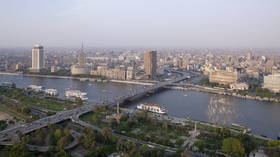African country should embrace ‘one-child’ policy – president

President Abdel Fattah al-Sisi has urged Egyptians to have far fewer children, arguing that the current birth rate will create a “catastrophe” for the North African country.
“We need 400,000 births per year,” al-Sisi told the Global Congress on Population, Health and Development (PHDC), which opened in Cairo on Tuesday.
“I do not agree with your idea that having children is a matter of complete freedom,” the president said, addressing Health and Population Minister Khaled Abdel Ghaffar, as quoted by AFP.
“Leaving their freedom to people who potentially do not know the extent of the challenge? In the end, it is the whole of society and the Egyptian state which will pay the price,” al-Sisi said. “We must organize this freedom, otherwise it will create a catastrophe.”
He cited the example of China, which “succeeded in their population control” by imposing a harsh one-child policy in the 1970s. Beijing abandoned the policy in 2015, and has since encouraged population growth.
According to PHDC conference materials, population growth can “put a strain on resources and infrastructure, leading to health and social challenges.” A rapidly growing population “compromises the availability and quality of basic services including, health, education, social security” and contributes to the “rapid depletion of natural resources,” the documents said.
The gathering, which began on Tuesday and is scheduled to run through September 8, is sponsored by multiple UN agencies, USAID, and several major pharmaceutical companies.
Egypt is by far the most populous Arab nation, with an estimated 113 million residents. It recorded almost 2.2 million births in 2022. Al-Sisi has pointed to the economic pressures the population growth has placed on the country, which has become reliant on importing food from abroad.
Cairo has sought greater investments from Russia as a way of dealing with the economic challenges. In January, it will join BRICS along with the UAE, Saudi Arabia, Ethiopia, Argentina, and Iran.













